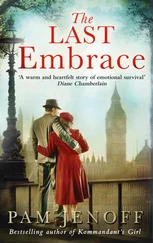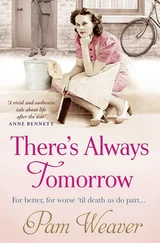Which would put one in rather a sticky situation, if one had to use force against fellow Englishmen, based solely on such information.
But what would one do, if the informers were telling the truth? If, having been taught to look to… London as a signal for their operations … the revolutionists had agreed that a day, at no very great distance, is appointed for a general rising …
Again, no corroborating evidence.
Except if you counted the fact that Wat had been hearing the same thing. From his informant. In the years Kit had been away, had half of England taken to informing on the other half?
For a moment, he forgot to be nervous about his dinner with Lord Sidmouth. For a moment, he was simply curious about what was really occurring.

Which was probably why the dinner went as smoothly as it did. One always makes a better impression when one is sincerely interested in the conversation. And Lord Sidmouth knew how to make it interesting, even compelling.
He put his case modestly, dispassionately.
“Regrettable, Lord Christopher, about having to get our information as we do. But what’s our alternative? Are we to accept no intelligence but from persons of the purest virtue? Or, given what’s at stake, do we employ the means that offer themselves?
“For surely we Britons have something worth holding on to, wouldn’t you say, from your time spent in less happy nations?”
Kit could hardly deny it.
“There’s been a certain diffusion of knowledge, these past years-by our press, in particular-spreading unchecked among the uneducated. Apt to instill an unwonted self-confidence among angry and distressed elements of the population who lack the advantages of tradition, culture, leisure-the broad view of things.”
Easier to accept if you didn’t picture Henry Claringworth as someone taking the broad view. Still, Kit knew what it had felt like to be angry and distressed. And no, it didn’t encourage wise decision-making.
“When the radicals turn the people on the soldiery, there will be violence. In an intellectual sense, there is already violence. Fortunately, we are in a position to influence the course of these events.”
Violence inevitable; only its outcome at issue.
The young assistant drinking sherry with them had nodded gravely before taking his leave.
Lord Sidmouth smiled after him. “A pity he couldn’t stay for dinner. He’d have given you a sense of the nature of our work-from the bottom up, you know. Merely the volume of correspondence is overwhelming: details, details. Still, there’ll be time…”
All very encouraging, Kit thought, as the Home Secretary led him in to dinner. For in his letter, the general had particularly praised Major Stansell’s skill with details.
They worked through that same letter of introduction over a delicate pea and lobster soup, discussed the peace negotiated at Vienna during the dory and salmon on a bed of pickled cucumber, touched upon a famous battle or two during a lime sherbet, and reviewed Kit’s school and family connections over a fine haunch of venison served with jelly.
Kit kept his face still, as though over a hand of whist. A footman was serving around a splendid pineapple with port and Sauternes.
A pity, though, the Secretary said now, about the Ninth Marquess’s very recent illness. For they absolutely needed their magistrates to be pulling together at this time, with the danger so pressing.
In fact, Lord Sidmouth recommended that Lord Christopher go down to Derbyshire, at least for a month or so.
“Your brother was wise to apprise you of his activities; puts you in a good way to take the reins. Anyone can collect his rents, but what’s important is order in the countryside, when the London radicals urge a rising in your district and others nearby.”
So Wat’s story was more than a stay-at-home brother’s self-regarding fancy. It would be very agreeable to help, of course. Go back home as… the New Kit. With his military intelligence experience to guide him.
“I’ve enjoyed our conversation, Stansell,” Lord Sidmouth told him. “And you’re much the sort of person we need.”
Kit let out a very long breath, which it now seemed he’d been holding for a week at least.
“But not now, when your brother needs you so much more. Go down to the country; keep watch over the situation. We’re depending on you lads to call out the troops… Coordination, clarity… in light of the present danger… and then come back and talk to us and we’ll find a place for you at Whitehall.”

He’d go tomorrow if they could get the traveling coach ready. He’d interview Wat’s informant and report back to London, talk to the men of the militia, make sure they had the arms they required. A pity if there had to be bloodshed on English soil. Still, the secretary had been sure of the plot and of the necessity of protecting the people in the countryside against the poison spreading among them (even those of them, like a certain lady, who were too deluded to understand the danger).
He’d keep busy (which in itself would be a relief), fighting anger and rebelliousness as best he could. As he’d done since Spain. Quelling his own anger and rebelliousness had saved him; he was happy to put the experience in the service of his nation.
And as for the deluded lady in question-well, they’d simply have to keep out of each other’s way, or she out of his way, to be more precise. For her own good, after all.
And afterward, when she saw what important work he’d done. Afterward, perhaps…

He celebrated his plans that night at a pugilistic exhibition and won a thousand into the bargain. Great sport, boxing. He waved to the young Home Office assistant from across the large room.
Or perhaps it wasn’t the assistant, for he didn’t wave back, and seemed deep in conversation with a tall, bewhiskered fellow in a flash brown coat. Not the sort of companion Kit would have imagined for a member of the Home Office, but then, sport made Britons equals as few things did.
No matter either way. England was beginning to feel like home again. He shouldered his way up to the table to collect his winnings.

If the village of Grefford were any different from a hundred others along the coach route, it wouldn’t be apparent to a stranger upon first arrival. There were the usual shops-butcher, baker, post office, apothecary, and well-stocked dry goods establishment among them. The church was at the end of High Street, the coaching inn just off the market square. The neighborhood’s less prosperous residents lived farther out from the village center and so were less visible than they might be-except for a few men who spent their spare hours arguing the issues of the day with Mr. Williams, the shoemaker.
Village life being of a comforting daily sameness, a coach’s arrival could be depended upon to precipitate some interest-or even excitement, if the approaching vehicle weren’t part of the regular service between London and Chesterfield.
Peggy was the first to hear it from inside Mrs. Roberts’s shop, where she’d been making orders according to the list Lady Christopher had made her go around home to fetch. For they needed heaps of things quite suddenly, some Grandin family members having taken it into their heads to arrive sooner than expected-as though there weren’t enough work already, in preparation for the house party.
Читать дальше
















